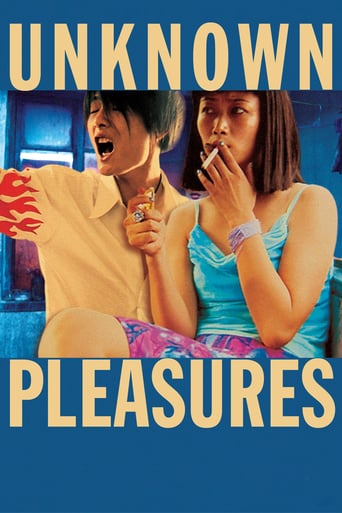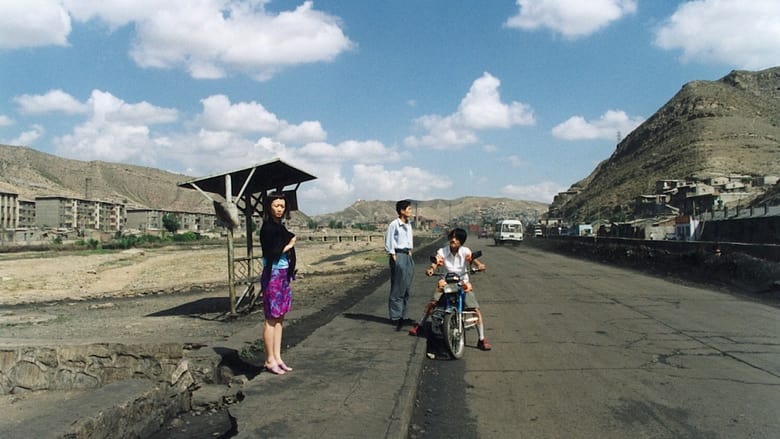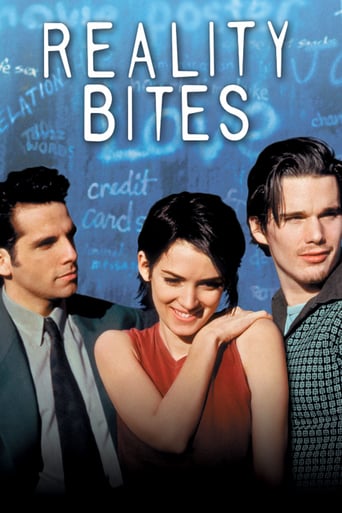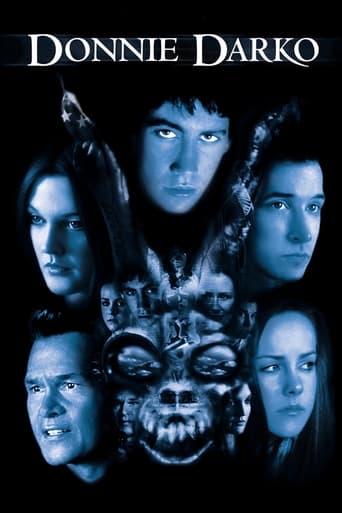

Unknown Pleasures (2002)
Three disaffected youths live in Datong in 2001, part of the new "Birth Control" generation. Fed on a steady diet of popular culture, both Western and Chinese, the characters of Unknown Pleasures represent a new breed in the People's Republic of China, one detached from reality through the screen of media and the internet.
Watch Trailer
Cast
Similar titles




Reviews
To me, this movie is perfection.
Highly Overrated But Still Good
Absolutely the worst movie.
I didn’t really have many expectations going into the movie (good or bad), but I actually really enjoyed it. I really liked the characters and the banter between them.
A poem to the millions of young men in China who are tempted and beguiled by the promises of a rapidly economically advancing society but are unable to turn those promises into reality. There are new roads in all directions but your scooter won't get you anywhere. The lyrics of the song perfectly fit the hopes and frustrations of the young men. BTW, the characters in this movie are not so much influenced by American culture as they are by the consumerism and globalization of the Chinese economy. "Are you having fun?"
I don't recall where I read a favorable review of this art film, but if I did I would make sure I don't rent anything else they recommend. This film went nowhere. Two Chinese boys with no motivation. They don't take any risks really, and neither do the filmmakers. I was not left with any particular emotion or thought. Photographically it was OK. Perhaps the filmmaker was going for Bergman type effect of portraying emotional emptiness. And maybe its a cultural translation I'm not getting.Saw parts of China not seen before - the more urban dirty landscape.. So that was a plus. I liked the girl. Her character had the most um, character.
I'm confused as to why people would still give the pleasant peasant fables of Zhang Yimou house-room now we're offered a view of intense, complex, and contemporary Chinese cinema like this. I adored the extreme negativity of this film's most repetitive moments: Xiao Ji getting slapped about the face ("having a good time?" "yes" "having a good time?" "yes" "having a good time?" "yes" "having a good time?" "yes"...) or trying repeatedly to drive up a slight slope on his motorbike. The very repeatability of film seems to highlight the way that only this silly, essentially boring medium gets at what's going on when stuff happens, in capitalist China as well as at home...
Unknown Pleasures, directed by Jia Zhangke, powerfully brings home the spiritual malaise affecting Chinese youth as a result of global capitalism. Although the film is set in a small, impoverished Chinese city in remote Shanxi province close to the Mongolian border, there is almost nothing traditionally Chinese in this film other than the location. Two 19-year olds, Bin Bin (Zhao Wei Wei) and Xiao Ji (Wy Qiong) are heavily influenced by American culture and seem to exist only for their own immediate pleasure. They live on the margins in a city where, according to the director, two-thirds of the population were unemployed in 2001. They drink coke, chain smoke cigarettes, covet U.S. dollars, talk excitedly about Hollywood movies such as Pulp Fiction, and dance to Western-style music at the local club. In the words of Kent Jones (Film Comment Sept/Oct 2002), the protagonists are "media-addicted, resigned to momentous change, and powerless to understand or affect it". Bin Bin lives with his mother (Bai Ru), who works at a local textile factory and sympathizes with the Falun Gong (an extreme Buddhist religious sect that has been persecuted by the Chinese Communist government). Apathetic and disengaged with no job and nothing to do, the two friends hang around the local community center playing pool and chatting with the regulars. After trying out for an acting job, Xiao Ji becomes attracted to Qiao Qiao (Zhao Tao) whose protective lover is gangster Quiao San. Xiao follows her around but seems unable or unwilling to make a move. When they finally go dancing, Xiao has to confront the threats of Quiao San's goons who finally catch up with him and slap him around. Bin Bin also has a girlfriend, Yuan Yuan (Zhou Qing Feng), but their romance seems to consist only in watching movies in a hotel room and singing popular songs (whose words suggest their own lives). Yuan Yuan has more purpose in life than Bin Bin and wants to study International Trade in Beijing. In a scene depicting Jia's wry humor, Xiao Ji puts Yuan's studies in perspective by saying, "WTO is nothing. Just a trick to make some cash" and Bin Bin declares to Yuan Yuan, " It is said that international trade is about buying rabbits to resell in the Ukraine." With little interest in common, they slowly drift apart. In a very telling scene, as Bin Bin sits in a booth in the inside of a train station staring blankly, Yuan Yuan rides her bicycle around and around, waiting for him to throw off his lethargy and join her. Though the boys hear about events in the outside world on television, for example, the winning of the Olympic Games by Beijing and the arrest of the leaders of the Falun Gong in Japan, they don't seem affected. Seemingly inured to unexplained violence, they are just mildly perplexed when a bomb explodes nearby with tragic results. Bin Bin asks whether the United States is attacking China.Shot in digital video that enhances its authenticity, Jia avoids pathos and sentimentality for a documentary-style realism that is deeply affecting. Although he focuses on the boys as victims of social and economic dislocation in China, the theme is more about feelings of abandonment, loneliness, and emotional numbness. Jia, one of the best of China's new generation underground "indie" directors, has captured this sense of ennui more palpably than any movie I've seen in a long, long time. When Xiao finally abandons his sputtering motor bike in the middle of a new superhighway, Jia seems to be suggesting that both he and China itself are at a precarious crossroads in their existence and must discard what isn't working if they are to move on.








